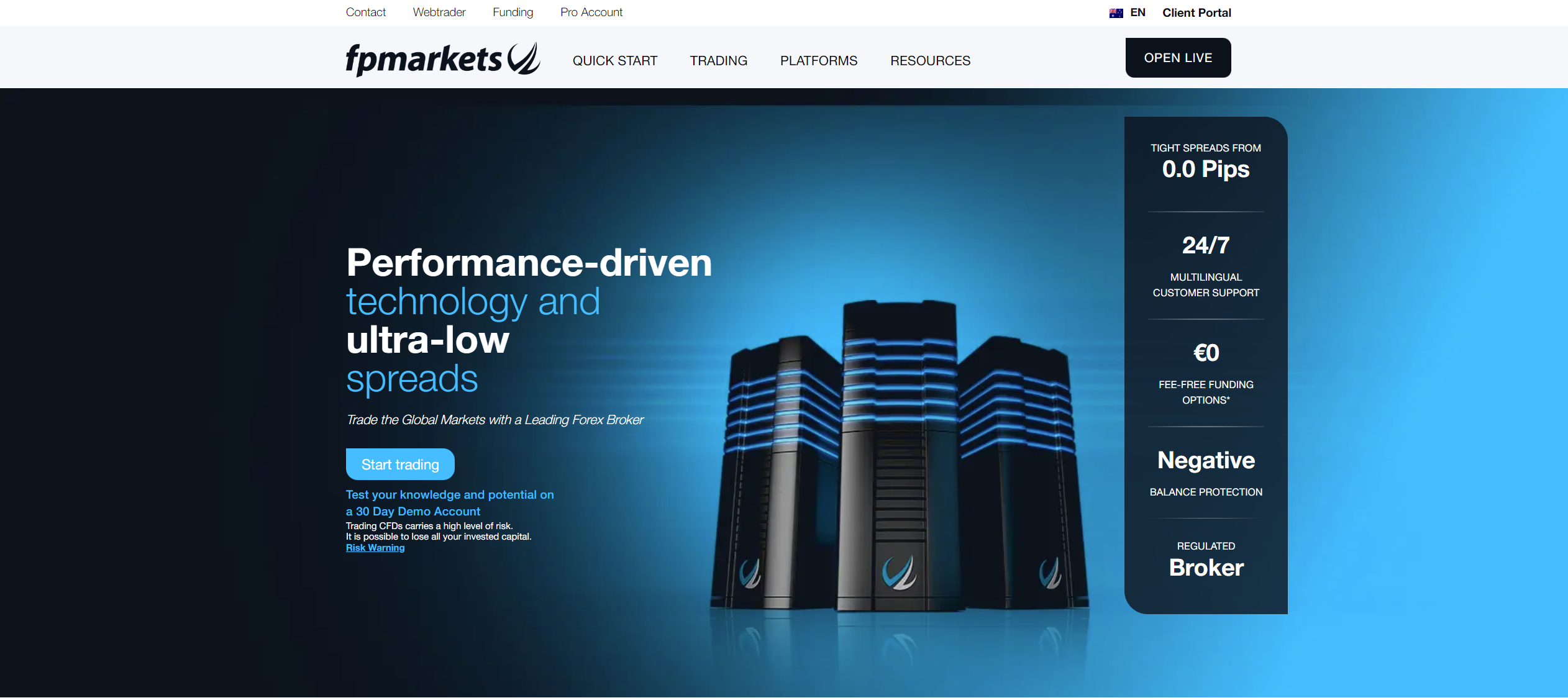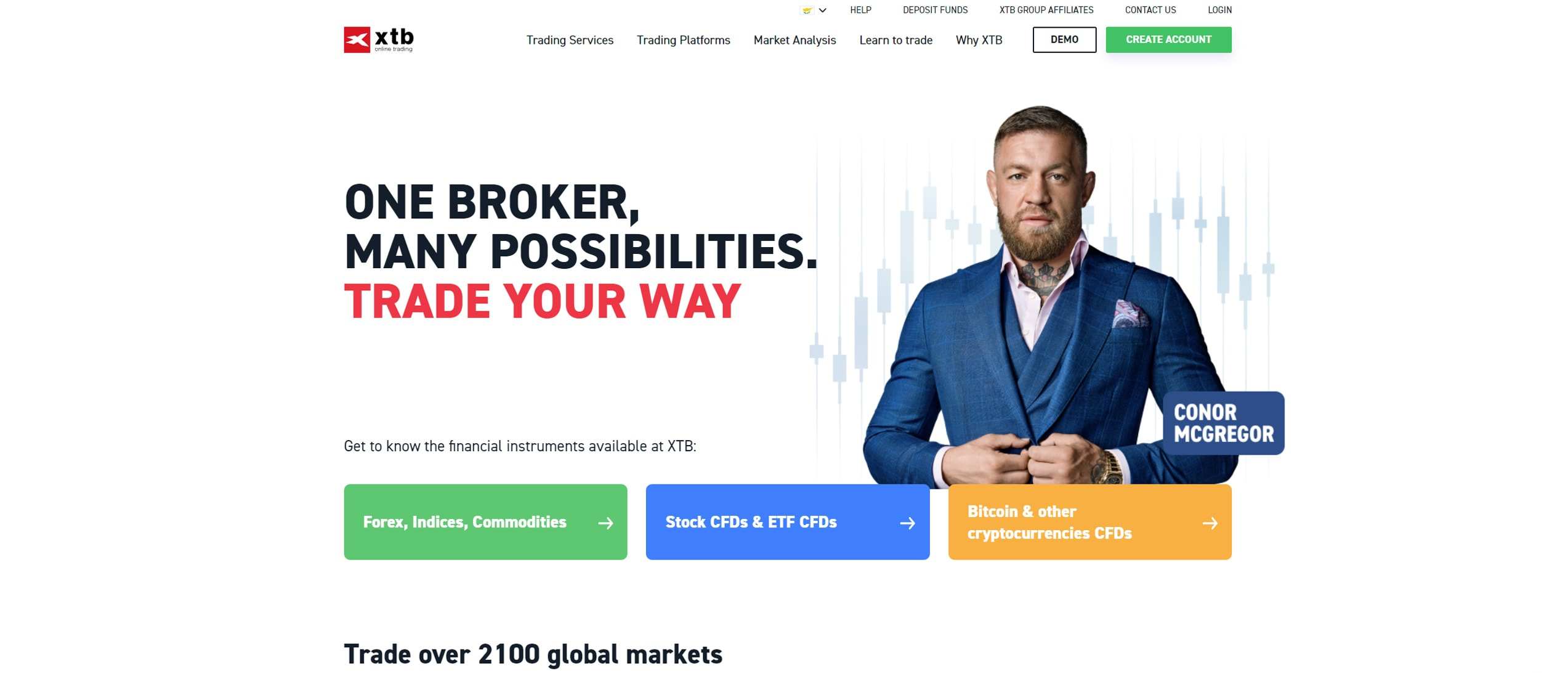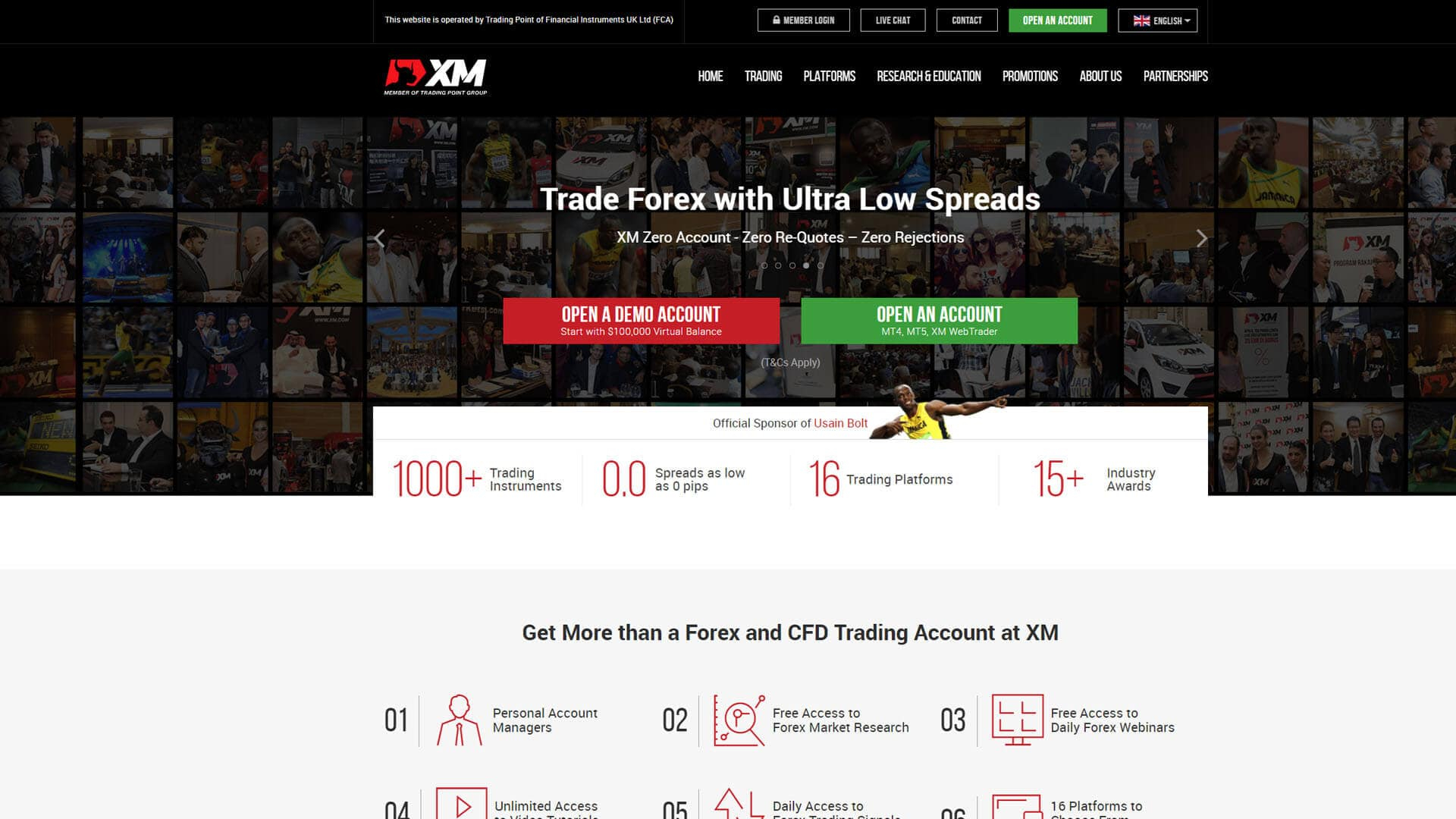Brokers With No Withdrawal Limit - Are There Any?
Withdrawal limits are restrictions brokers place on how much money can be withdrawn from a trading account within a specified timeframe. Withdrawal limits are important to consider for online traders as they can constrain their ability to access funds. In turn, they can influence trading strategies and overall market engagement. In this article, we will explore brokers’ withdrawal policies and how these policies affect traders. We want to know whether there are any brokers with no withdrawal limits.
Why Brokers Impose Withdrawal Limits
Withdrawal limits on broker sites are designed to manage:
- Security - Withdrawal limits are essential for enhancing the security of financial transactions. They prevent fraud by limiting how much can be withdrawn, reducing the risk of unauthorised access draining an account.
- Cash Flow - To ensure they have sufficient liquidity to handle all client withdrawals effectively, brokers impose withdrawal limits to manage their cash flow effectively
- Payment Processor Limitations - Different payment methods have their own limits which the broker has to follow.
- Regulatory Requirements - Regulatory bodies in some jurisdictions might impose withdrawal limits to maintain the integrity of financial markets.
With that, let’s see how some different brokers handle withdrawal limits and whether any of them offer a no-limit policy.
FP Markets
FP Markets does not have a set withdrawal limit that it imposes on its clients. However, this broker has a few rules that traders must follow when making withdrawals. For starters, traders must first withdraw the same amount as their deposits via the same method they used to make the deposit. If a trader used several deposit methods, they would need to withdraw the same amount they deposited back to each one, starting with any card deposits. Once the deposits have been withdrawn, traders can then use whatever payment method to withdraw their profits.
There are a ton of payment options that traders can use on this broker site. These include credit/debit cards, local bank transfers, wire transfers, Neteller, Skrill, PayTrust, Perfect Money, Dragonpay, and many more.

Notably, this broker gives its traders access to over 10,000 different market products including over 70 different currency pairs, and CFDs across indices, metals, stocks, commodities, ETFs, cryptocurrencies, and bonds. To trade these markets, FP Markets provides five platforms which include MT4, MT5, Iress, cTrader, and TradingView.
Further, the spreads are within market standards. The standard account that FP Markets offers comes with spreads from as low as 1.0 pips for major currencies with no commission charged. On the other hand, the raw account features spreads from as low as 0.0 pips plus a commission of $3 per side per lot.
It is important for traders to consider the regulations of a broker before investing any cash. Luckily, FP Markets operates under the regulation of the CySEC in Cyprus, the ASIC in Australia, the FSCA in South Africa, and the FSA in Seychelles, among others.
72.44% of retail CFD accounts lose money
XTB
XTB only allows its investors to make withdrawals through bank transfers. Notably, traders can withdraw any amount to their bank account. On another note, withdrawals can only be made to a bank account in the name of a client. Depending on when you place your withdrawal order, your money will be sent to you on the same or the next business day.
XTB provides a wide selection of trading instruments, including CFDs on forex, commodities, cryptocurrencies, indices, stocks, and ETFs. This flexibility lets traders create diversified portfolios. The broker offers its flagship xStation 5, which is accessible on both desktop and mobile devices for seamless market access.

On another note, XTB offers affordable spreads when trading. Their Standard account has low spreads from 0.5 pips on major currencies and no commissions. If you want to avoid overnight financing costs, their Swap-Free account has slightly higher spreads starting at 0.7 pips.
Finally, XTB is regulated by several financial authorities. These include the CySEC in Cyprus, the FCA in the UK, the KNF in Poland, and the FSC in Belize.
75-78% of retail investor accounts lose money when trading CFDs with this provider.
XM
XM is another popular broker that does not have a withdrawal limit. With this broker, there is only a minimum withdrawal amount of $5 and there is no maximum limit. The broker lets traders control how much they withdraw as the account is theirs. There are various payment options available to use for withdrawals on this broker site including bank transfers, credit/debit cards, and Skrill. The only thing to note is that you should first use the same method you used for depositing funds to process a withdrawal before using any other payment methods.
When it comes to market offerings, XM provides access to over 1,000 financial instruments. These include CFDs on forex, stocks, indices, energies, precious metals, and cryptocurrencies. Traders can choose between MetaTrader 4, MetaTrader 5, and XM's proprietary trading app to engage with these markets.

XM also offers commission-free trading on most of its accounts. Spreads start as low as 1.0 pips on the Standard and Micro accounts for major currencies, with no commission fees. For traders looking for tighter spreads, the XM Ultra Low account offers spreads starting at just 0.6 pips, also with no commission fees. Only its Shares account charges a commission that depends on the share and the size of the trade.
Additionally, XM boasts robust regulatory oversight. It operates under the regulation of authorities such as the CySEC in Cyprus, the ASIC in Australia, and the FSC in Belize.
75.18% of retail investor accounts lose money when trading CFDs with this provider.
IC Markets
IC Markets is another broker with no imposed withdrawal limits, allowing traders to withdraw their funds without any set maximum restrictions. This flexibility offers traders the freedom to manage their accounts without constraints. IC Markets supports various withdrawal methods, including bank transfers, credit/debit cards, and e-wallets like Skrill, Neteller, and PayPal. Notably, withdrawals are first processed to credit cards, then e-wallet accounts and all the rest will be transferred to the bank account in accordance with the amounts deposited by each method.
In terms of market offerings, IC Markets provides access to a vast array of financial instruments. These instruments are from various global markets including forex, commodities, indices, futures, stocks and metal. The broker offers three trading platforms including MetaTrader 4, MetaTrader 5, and cTrader.
One of the standout features of IC Markets is its competitive pricing. The standard account offers spreads as low as 0.6 pips with no commissions. Clients can also trade on 0.0 pip spreads on the raw accounts. The raw account requires a commission of $3.0 per 100k traded for cTrader clients and $3.5 for MetaTrader clients.
Additionally, IC Markets operates under the regulation of several financial authorities. These include the CySEC in Cyprus and ASIC in Australia. Recognising the critical role regulations play in safeguarding traders from fraud, we strongly advise traders to invest exclusively with brokers regulated by reputable authorities.
ATFX
ATFX does not have any maximum withdrawal limits for its traders. Interestingly, the minimum amount that traders can withdraw freely is €/$/£100. It is possible to withdraw lower amounts than this but a fee of €/$/£5.00 will be charged. ATFX offers a variety of withdrawal methods including bank wires, credit/debit cards, and popular e-wallets like Skrill, Neteller, and Perfect Money. Similar to other brokers, the withdrawal process starts by refunding the initial deposit method before allowing further withdrawals.
In terms of market offerings, ATFX provides access to a broad range of financial instruments. These include assets from global markets such as forex, indices, commodities, ETFs, and shares. As such, traders can diversify their portfolios under one trading account. The trading platforms available to use include the popular MetaTrader 4 (MT4) and MetaTrader 5 (MT5) platforms.
The spreads offered by this broker vary based on the account type a trader chooses. There are four available account options: Standard, Edge, Raw, and Raw Pro. The Standard account, with a minimum deposit of $200, features spreads starting from 1.2 pips on major currency pairs and does not charge any commission. In contrast, the Edge account requires a minimum deposit of $10,000 and offers spreads as low as 0.8 pips for major currencies, also with no commission.
For traders seeking tighter spreads, the Raw account provides spreads starting from 0.0 pips, but with a $7 commission per round turn, and it requires a minimum deposit of $20,000. Lastly, the Raw Pro account, with a minimum deposit of $50,000, offers spreads from 0.0 pips and a reduced commission of $5 per round turn.
ATFX is regulated by multiple authorities worldwide. These include the FCA in the UK, CySEC in Cyprus, ASIC in Australia, the SCA in the UAE, and FSCA in South Africa, among others.
BDSwiss
BDSwiss is another broker that stands out for its flexible withdrawal policies. There are no maximum limits on deposits or withdrawals. Additionally, with the exception of bank wire withdrawals, BDSwiss does not require a minimum withdrawal amount. The broker supports various withdrawal methods, including bank transfers, credit/debit cards, and e-wallets like Skrill and Neteller.
BDSwiss provides access to a wide range of financial instruments, including forex, commodities, shares, indices, and cryptocurrencies. Traders can access these markets using platforms such as MetaTrader 5, BDSwiss mobile app, and BDSwiss WebTrader.
The spreads offered by BDSwiss vary depending on the account type. The Classic account offers spreads starting at 1.3 pips for major currencies, while the Cent account has spreads from 1.6 pips. The VIP account provides the tightest spreads at 1.0 pips or lower. All three accounts have no commission fees. In contrast, the Raw account features spreads as low as 0.3 pips but charges a commission of $5 per trade.
BDSwiss is regulated by several financial authorities, including the SCA in the UAE, the FSCA in South Africa, the FSA in Seychelles, and the FSC in Mauritius.
Pros and Cons of No Withdrawal Limits
Having no withdrawal limits on a broker site can offer several potential benefits and drawbacks:
Pros
- Flexibility - Traders have complete control over their funds, allowing for easy access and adjustments to trading strategies.
- Greater Confidence - The absence of limits can boost trust in a broker, as it indicates financial stability and transparency. This shows that the broker is capable of fulfilling large withdrawal requests.
- Support for Large-Scale Trading - High-volume traders and investors with larger account balances benefit from the ability to withdraw large sums without limitations. This allows for smoother capital movement.
Cons
- Potential for Financial Mismanagement - Having no withdrawal limits might tempt traders to withdraw too much too quickly. This may leave them with insufficient funds in their trading accounts, which could hinder future trades.
- Fraud Risks - While brokers with no withdrawal limits typically have robust security measures, there's always a risk of unauthorized access to funds.
Closing Remarks
Brokers without withdrawal limits offer significant advantages. They provide liquidity, flexibility, and operational efficiency, making them an attractive option for traders. However, it is essential to consider the associated challenges, such as regulatory compliance and security risks. By choosing reputable brokers, traders can enjoy the benefits of unlimited withdrawals while mitigating potential risks.
In summary, the ability to withdraw funds without limits is valuable for various markets. Nonetheless, traders should always conduct thorough research before choosing a broker. They should ensure they are dealing with a reputable company that adheres to industry standards and regulatory requirements. Additionally, it’s essential to stay updated on the terms and conditions associated with withdrawals as they may change over time.
Top-Tier Trusted Brokers
The table below contains links to 3rd party websites of our top partners from whom we receive compensation at no additional cost to you.




























